Translations
Primo Levi is one of the most widely read Italian writers in the world. His works, translated into more than 40 languages, have spread widely, but they fared differently at different times and in different countries.
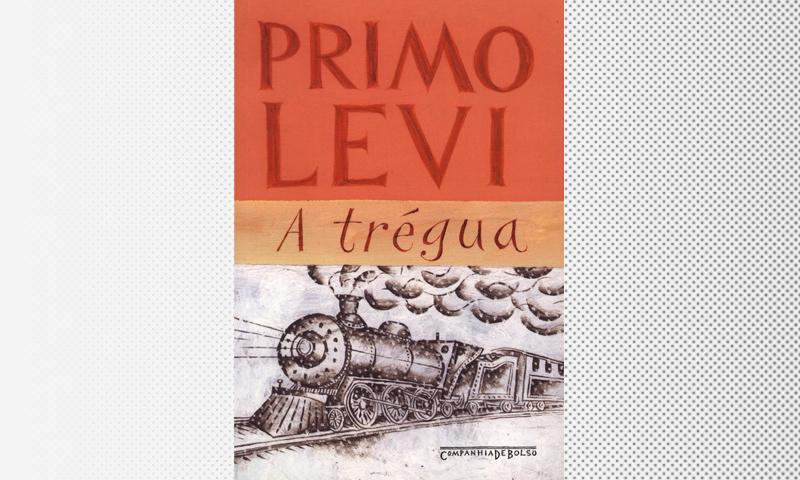
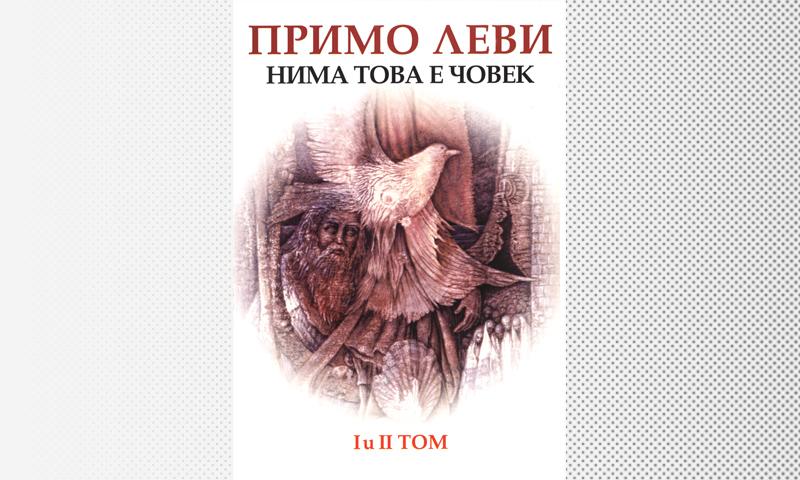
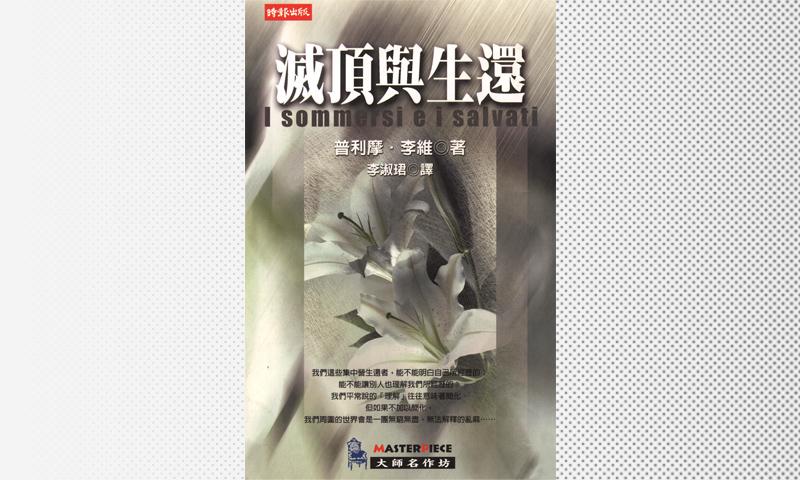
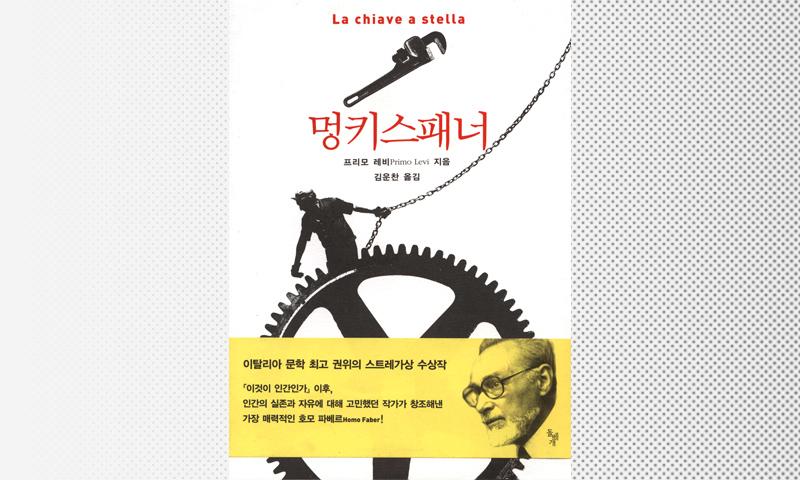
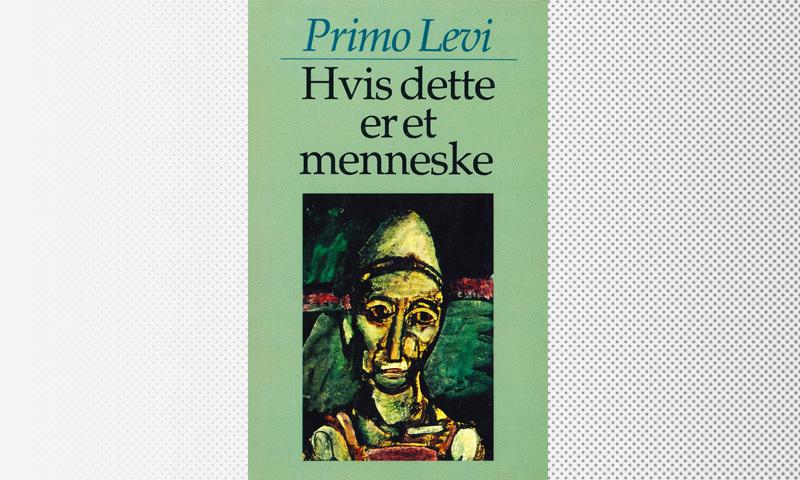
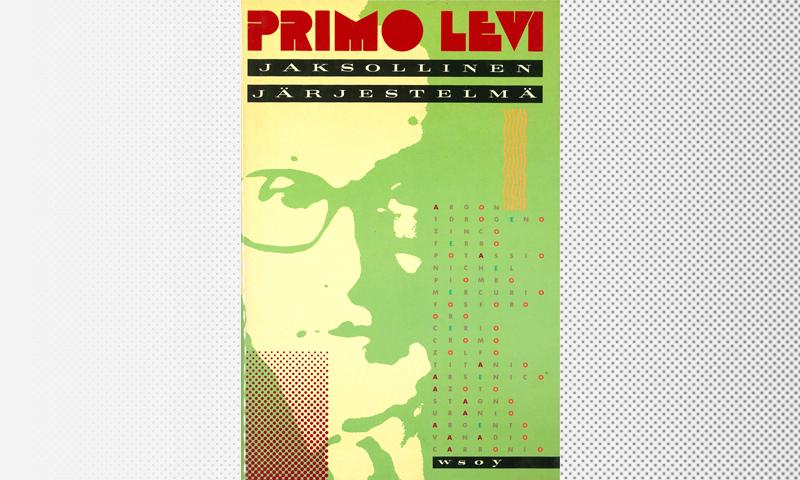
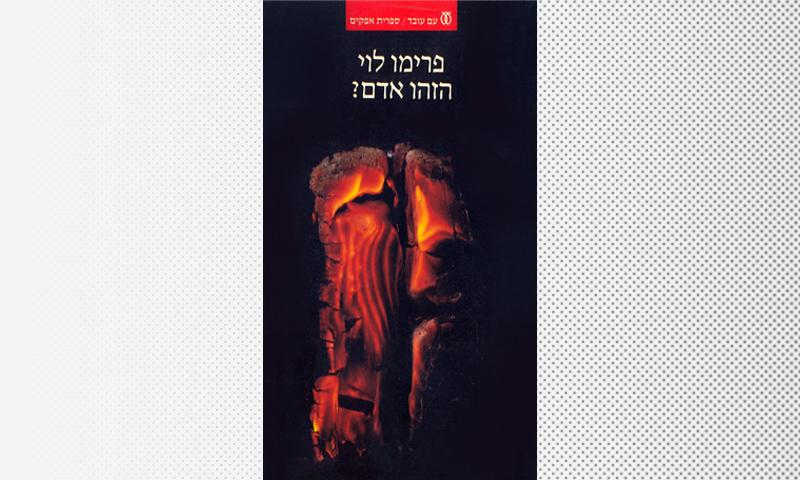
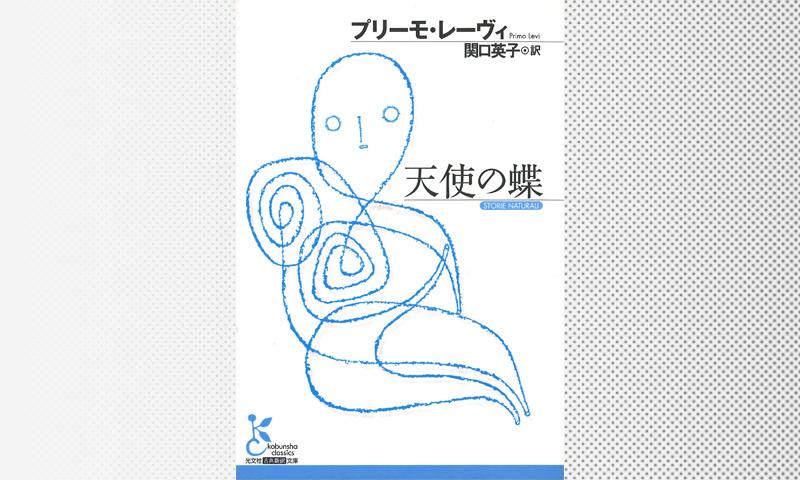
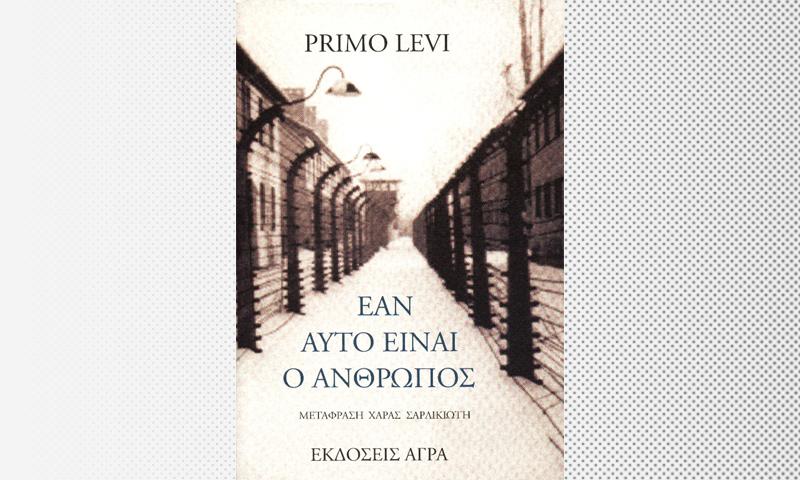
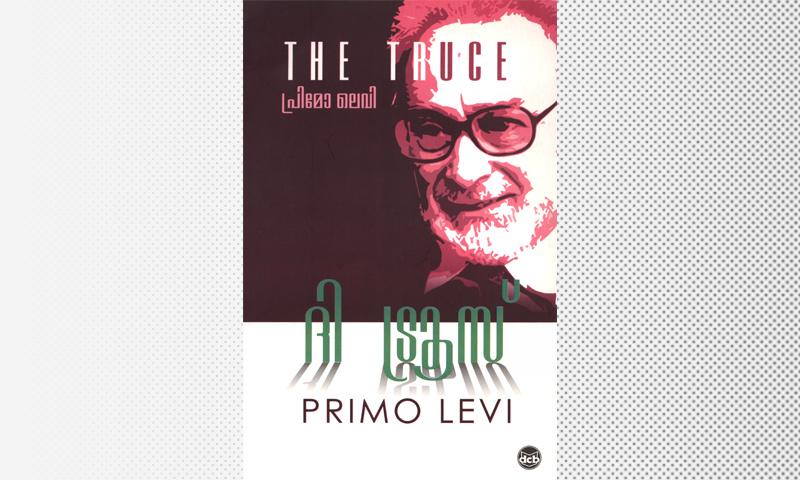
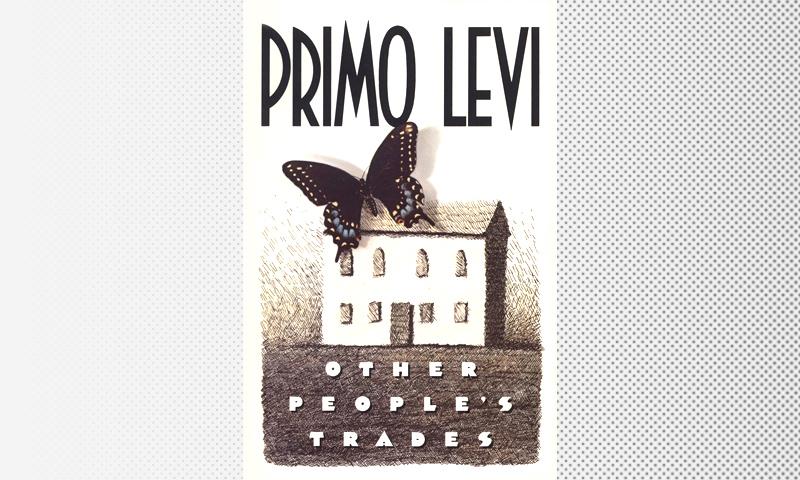
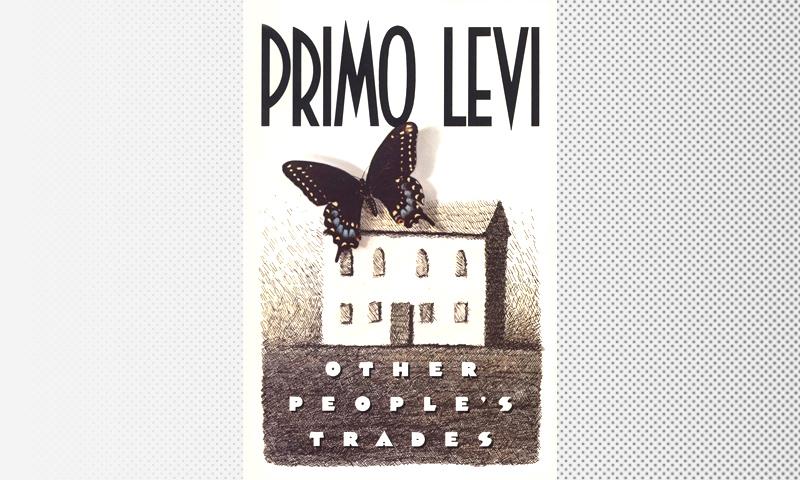
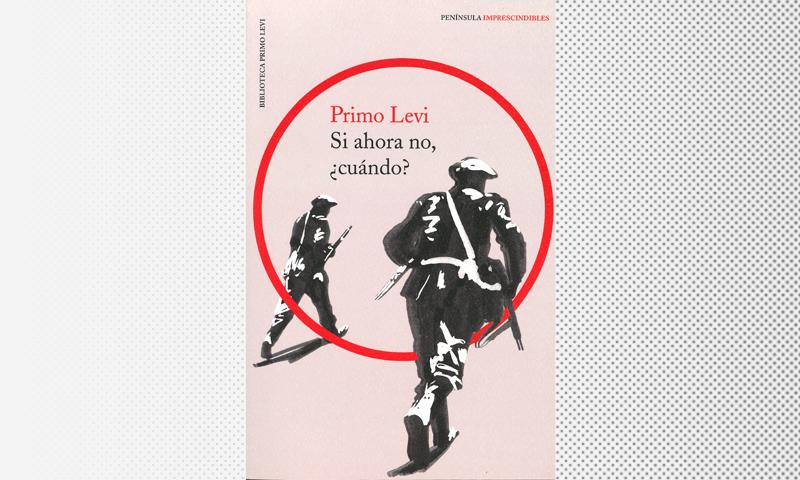

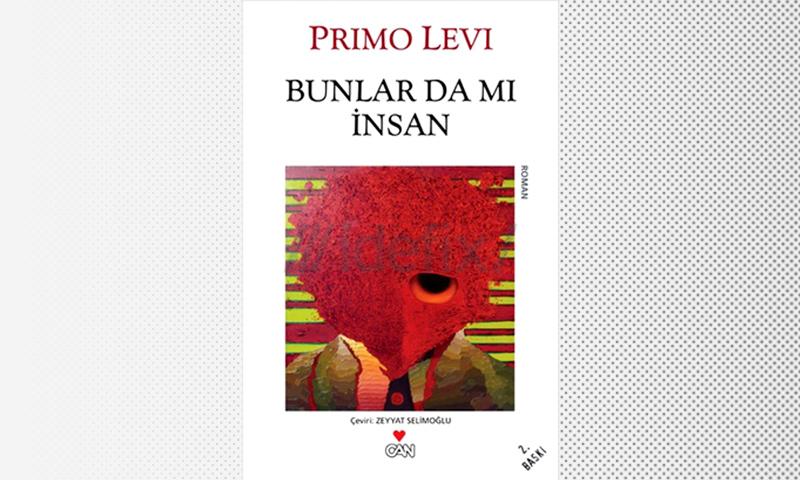
Primo Levi is one of the most widely read Italian writers in the world. His works, translated into more than 40 languages, have spread widely, but they fared differently at different times and in different countries. The texts that you can have access to from this page will allow you to take a first look at how interest in Levi gradually developed under various circumstances in various places.
This page also contains contributions, obtained exclusively by the Center, on the translations of Primo Levi in the world and on the events relating to the reception of his work.
Approfondimenti sulla ricezione: contributi ottenuti in esclusiva dal Centro sulle traduzioni di Primo Levi nel mondo e sulle vicende relative alla ricezione della sua opera.
Insights on the reception: contributions obtained exclusively by the Center on the translations of Primo Levi in the world and on the events relating to the reception of his work.
Albanian
If This is a Man and three stories were translated into Albanian between 2002 and 2005, the only texts of Levi to be translated to date. If This is a Man was translated by Petri Gencij with the title A është, vallë, njeri and published by Pegi (Tirana, 2000). The short stories appeared in the periodicals Ars and Republika in 2003 and 2005.
Arabic
None of Primo Levi’s works have been translated into Arabic, according to research in the largest libraries. In 2009 an Arabic translation of If This is a Man was put on line and made available in Pdf format for anyone who subscribes to the site, www.projetaladin.org. This is the site of Projet Aladin, an association of writers, diplomats, intellectuals and translators dedicated to spreading information on the Shoah to the Islamic world. It offers an on-line library of more than 40 texts on the Shoah that can be read in Arabic, Farsi, English, and French.
Basque
The Periodic Table / Sistema periodikoa was translated into Basque by Juan Garzìa Garmendìa and published in 1998.
Bulgarian
"In 1994… the translator Bozan Hristov, who at the time was the editor of the literary journal Panorama, began to translate If This is a Man and The Truce.… A wealthy friend of his sponsored the translation and contacted Albert Benbasat, who was to write a preface for the book. Thanks to this, Nimà tovà and Cŏvék were published together (Sofia, 1995) by the almost unknown publishers Angelinov i partnjori…. 1200 copies were printed. Currently, they cannot be found in bookstores."
Giuseppe Dell’Agata, "Primo Levi in Bulgaria," in Giovanni Tesio (ed.) La manutenzione della memoria. Diffusione e conoscenza di Primo Levi nei paesi europei [Maintaining memory: the reach and the knowledge of Primo Levi in European countries](Torino: Centro Studi Piemontesi, 2005), pp.178-179
Catalan
The Catalan translations of the following works have been published -- If This is a Man (1996), The Truce (1997),The Periodic Table (1998), The Drowned and the Saved (2000), various short stories anthologized as Contesand translated by Teresa Muñoz i Lloret (2007), Conversations with Primo Levi by Ferdinando Camon, and theAuschwitz Report written with Leonardo Debenedetti (2005). Almost all of Levi’s works have been published by Edicions 62 of Barcellona, which published the trilogy, Trilogia d'Auschwitz (If This is a Man, The Drowned and the Saved, and The Truce), translated by Francesc Miravitlles (2011).
Chinese
The first Chinese translation dates back to 1998, when The Periodic Table was published with a translation by Zhongyuan Mou and Haowei Wang. A few years later (2001), The Drowned and the Saved was translated by Li Shujun Yi and published in Mandarin. The book was later translated into simplified Chinese by Chenguang Yang and published by Sanlian Shidian (Shanghai, 2013).
Croatian
Various writings of Levi’s that appeared in journals and anthologies of Italian stories were published in Croatia in the 1990s, along with The Periodic Table (1991), and If This is a Man (1993). In addition, a selection of poems from Collected Poems,was translated by Tvrtko Klaric and entitled Shemà (1992). Klaric also translated the Croatian edition of The Search for Roots (Felsina publishers, 2008).
Insights on the reception: contributions obtained exclusively by the Center on the translations of Primo Levi in the world and on the events relating to the reception of his work.
Czech
Only two of Primo Levi’s works were translated in Czechoslovakia before the country was divided in two in1993. The Periodic Table was translated by Hana Benesovà as Prvky života, literally "Elements of life" and published by Odeon in 1981. In 1989 The Drowned and the Saved with a preface by Cynthia Ozick was published in Czech by Index, an exile publisher in Cologne.
In 1993 a new translation of The Drowned and the Saved was published by Mladà Fronta (Prague) with the same title, Potopení a zachránění. This was followed by If This is a Man / Je-li toto človek, (Prague: Sefer,1995) and At an Uncertain Hour (Collected Poems) / V nejisté hodině (Prague: Triàda, 1997). The Truce, Conversations and Interviews and If Not Now, When? were published 2000-06.
Levi’s works do not have a single publisher nor translator. There are 5 publishers and 3 translators.
Danish
The first work of Primo Levi’s to be translated into Danish was If Not Now, When? / Om ikke nu, hvornår så (1986). Previously in the 1970s and 1980s, the translator Maria Giacobbe had submitted excerpts from other books by Levi and stories to various periodicals and anthologies. Many were rejected. However, her translations of an excerpt from The Truce (1969) and of "Maria in the Circle" (1970) - i.e. "Titanium" from The Periodic Table – were published in two different collections of Italian stories. Currently, seven books by Primo Levi are being published in Denmark, including Lilith. What remain unpublished are The Monkey’s Wrench, a good number of short stories, all the essays, all the miscellaneous writinfs, the Conversations (Dialogo) with Tullio Regge and theAuschwitz Report, written with Leonardo Debenedetti.
Almost all of Levi’s works have a single translator, Nina Gross. However, Conversations and Interviews / Samtaler og interviews, 2003 was translated by Jytte Lollesgaard. All the first editions were published by the small publishing house, Forum (Copenhagen). Numerous re-editions of If Not Now, When?, The Truce and The Drowned and the Saved were offered by Gyldendal publishers, by Rosinante publishers 2012 (translated by Nina Gross), and by various book clubs.
If This is a Man, The Truce, The Drowned and the Saved, and Lilith are also available as audio books.
Dutch
The first translation of Primo Levi into Dutch date from the 1960s - If This is a Man / Eens was ich en mens (De Arbeiderspers, 1963) and The Truce / Het oponthoud (Nelissen, 1966). Eens was ich en menshad a press run of 10000 copies, as did the first German translation. It was only in the second half of the 1980s that Primo Levi’s works were widely published. If This is a Man / Is dit een mens and The Truce / Het Respijt (1988) were published by Meulenhoff (1987 & 1988) in new translations by Frida Vogels with new, more accurate titles.
As of date, Meulenhoff is virtually the only publisher of Levi in Holland. Between 1987 and 1991 almost all of Levi’s books were published. In the 1990s various collections of his stories were published. In 2001 all of his stories, many of which were translated for the first time, were published in the book, Alle verhalen. Some of his essays were anthologized in The Mirror Maker / De spiegelmaker (1991). There are some works of Levi’s that remain untranslated, including The Search for Roots, Auschwitz Report written with Leonardo Debenedetti, and the newspaper articles in La Stampa.
Meulenhoff has exclusive rights to Levi’s works in Holland. It issues regular reprintings of If This is a Man, The Truce and The Periodic Table, which followed in the wake of its great success in the United States. Prominent among Levi’s translators are Frida Vogels, then Martin Asscher, who is also an editor for Meulenhoff and the Italianist Reinier Speelman. Primo Levi energetically promoted the publication of his books in Holland. After If This is a Man was published, he contacted Ezra Ben-Gershom, a Dutchman whom he encouraged to write a memoir, which was entitled David. He also contacted Rolf Orthel, a journalist who involved Levi in the production on a documentary on Eduard Wirths, the doctor at Auschwitz. Orthel sent Levi a copy of Jacob Presser’s Breaking Point / De nacht der Girondijnen, which Levi appreciated so much that he decided to translate it into Italian, without knowing Dutch but taking advantage of his knowledge of English and German.
English
The English translation of If This is a Man was the first one made into any language. It dates from 1959. Stuart Woolf, a young English historian, did the translation for Orion Press, an American publishing house based in Florence. This translation, which came out three years earlier than the German and French translations, and was followed by Woolf’s translation of The Truce, published by Bodley Head (London). Both translations were published in the United States, If This is a Man by Collier Books and The Truce by Atlantic Monthly, a port of Little Brown. The American published changed both of Woolf’s titles If This is a Man became Survival in Auschwitz and The Truce became The Reawakening. The Monkey’s Wrench, published in 1986, was also to have two different titles - The Wrench in the UK and The Monkey's Wrench in the USA.
The first two translations was followed by a collection of poetry, Shema (Menard Press, 1976). It was only in 1984 in the wake of the success of The Periodic Table that Primo Levi’s works won a widespread English-language readership. The Periodic Table was published first in the USA by Schocken Books and then in the UK by Michael Joseph, an affiliate of Penguin.
Almost all of Levi’s works have been translated in English. However, some of his short stories and essays are missing from the collections published in English entitled The Sixth Day, Moments of Reprieve, The Mirror Maker, and A Tranquil Star. On the other hand, in 2011 Penguin published The Magic Paint, a collection of 8 short stories taken from various collections and translated by Ann Goldstein, Alessandra Bastagli and Jenny McPhee.
In 2015 the American publisher Liveright published Primo Levi’s complete works.
The publication history of Primo Levi’s works in English has been marked by various problems. This was the case of The Periodic Table, which had been rejected by 27 publishers before it was published by Schocken Books (New York) and reviewed glowingly by Saul Bellow, which became a great promoter of the book. Penguin held the rights for If This is a Man and The Truce, but has refused to accompany the publishing of The Periodic Tablewith re-editions of the two books. The Periodic Table was then published chapter by chapter in the journal, Science, in 1985. If Not Now, When? faced similar problems. Summit Books, and affiliate of Simon & Schuster, had commissioned William Weaver to translate the book in 1983 for a mostly Jewish readership. However, as Weaver recounted, the publication of the book was postponed to 1985 because Levi had criticized the policies of the Israeli government.
Over the years Primo Levi tried in vain to have new translations of If This is a Man and The Truce published. In 1986 the publication rights for these two books expired, but Samuelson at Schocken Books took no steps to renew all four books, but kept only the American versions, Survival in Auschwitz and The Reawakening, to the great disappointment of the author. A cousin of Primo Levi’s, Anna Yona, a Massachusetts resident, played a leading role in promoting her cousin’s books in the USA. She had already passed around the first chapters of If This is a Man in 1946 among Jewish intellectuals and publishers that she knew, but with no outcome. She put Levi into contact with Ruth Feldman, who was to translate the poems of Shema and then the stories in Moments of Reprieve. The translators of Primo Levi’s works in English include Stuart Woolf, William Weaver, Alvin Rosenfeld, and Raymond Rosenthal.
Insights on the reception: contributions obtained exclusively by the Center on the translations of Primo Levi in the world and on the events relating to the reception of his work.
Estonian
Primo Levi was translated in Estonia only after its independence from the Soviet Union in 1991. In 2001 the Estonian journal, Vikerkaar, published a translation of the story "Cerium" from The Periodic Table. In 2004, Vagabund (Tallinn) published a volume including If This is a Man and The Truceentitled Kas see on inimene / Hingetõmbeaeg.
Farsi (Persian)
Research in the largest libraries in Iran has revealed that there are no translations of any of Levi’s works into Farsi. In 2009 a Farsi translation of If This is a Man was put on line and made available in Pdf format for anyone who subscribes to the site, www.projetaladin.org. This is the site of Projet Aladin, an association of writers, diplomats, intellectuals and translators dedicated to spreading information on the Shoah to the Islamic world. It offers an on-line library of more than 40 texts on the Shoah that can be read in Arabic, Farsi, English, and French.
Finnish
Finland was the first northern European country to publish Primo Levi’s a work by Primo Levi. If This is a Man / Tällainenko on ihminen? was translated by the writer, Tapio Hisivaara, and published by Gummerus in 1962. This translation was republished in 1982 and 2005.
The Truce was translated by Ari Koskinen for Yleisradio, a public radio station (1981; the translation is available on the international database of translations for Unesco) and then retranslated by Irma Koistinen for Like publishers (Helsinki, 2001). If Not Now, When? (1986) was translated by Pirkko Peltonen, The Periodic Table (1988) by Aira Buffa, and The Drowned and the Saved (2009) by Riikka Kankkunen, each with a different publisher.
French
The French translation of If This is a Man (Paris: Buchet-Castel, 1961) was the third into a foreign language, following the English and German translations. Its title J'etais un homme [I was a man] was unfaithful to the original and ineffective. It mirrored the insufficient level of Michèle Causse’s translation. Levi had placed a lot of hope in this translation and was thoroughly disappointed, so much as to blame the book’s lack of success on it. This translation varied from the original text countless times.
However, a second translation by Martine Schruoffeneger many year later (Julliard publishers, 1987) was much more, but not entirely accurate, beginning with its correct title.
If This is a Man was followed by The Truce (1966), The Monkey’s Wrench (1978) and If Not Now, When? (1980). Levi’s death in 1987 coincided with a publishing boom for his work. This is the year when The Periodic Table and Lilít [Lilith] were published.
By the early 1990s most of Primo Levi’s works had been translated into French, including the short-story collections and the Conversations with Primo Leviby Ferdinando Camon and Conversations with Tullio Regge. A volume where his works are anthologized-- Oeuvres (2005) -- unites If This is a Man, The Truce, The Periodic Table, The Monkey’s Wrench, If Not Now, When? and Conversazioni e interviste [The Voice of Memory], edited by Marco Belpoliti.
There is no single predominant publisher of Levi in France. There are big publishers like Gallimard and Robert Laffont as well as little publishers like Liana Levi. Gallimard published At an Uncertain Hour, Conversazioni[The Voice of Memory], andThe Drowned and the Saved. Robert Laffont republished the correctly entitled Si c'est un homme in 1996 in an edition that contained a preface by Levi dedicated to the memory of Rudolf Hoess, the essay “The Black Hole of Auschwitz,” and Philip Roth’s interview, “A Man Saved by his Skills.” The little publisher, Liana Levi, published Lilith[Lilith] and Il fabbricante di specchi[the mirror maker, an anthology].
Levi’s works have had 12 different translators into French, the most prominent of them being André Maugé, Martine Schruoffeneger and Roland Stragliati.
German
German Federal Republic
Cover of “Ist das ein Mensch”, dtv, 2005
West Germany was the second country where a book by Primo Levi came out. If This is a Man / Ist das ein Mensch? was published by Samuel Fischer in 1961. It was followed by The Truce (1964) and an anthology from Storie Naturali [Nature Stories]entitled Die Verdopplung einer schönen Dame und andere Überraschungen ["The Doubling of a Beautiful Woman and Other Surprises"] (1969). Then, there was a gap in publishing until 1986, when Hanser published If Not Now, When? and The Periodic Table in 1987. At present almost all of Levi’s writings have been translated into German even though there is no single edition of his collected works and miscellaneous writings. About 60% of his essays and short stories have been translated and anthologized.
The first publisher of Primo Levi was Samuel Fischer, a publisher of Jewish origin who had also published Thomas Mann. The Truce and the short stories of Die Verdopplung were published Wegner. In 1984 Michael Kruger, a literary agent for the Hanser publishing house in Munich, offered Primo Levi to republish all his works with a contract stipulating this publisher’s virtually exclusive rights. From that moment on, most of Primo Levi’s works have been published by Hanser, with annual permissions granted to the paperback series, Dtv.
In spite of this, Auschwitz Reportwas published by BasisDruck in 2006. It was translated by Martina Kempter as well as edited and annotated by Philippe Mesnard.
If This is a Man was translated by Heinz Riedt, a deserter from the Wehrmacht, the German army in the Second World War, who then joined the partisans in the Resistance on the Euganei hills near Venice. "An anomalous German," he was defined by Levi. He checked the faithfulness of the translation chapter by chapter, perhaps with the help of a German lawyer friend, Rudolf Loewenthal [Thomson : 287]. In the end he was very satisfied with Riedt’s translation, as opposed to the translation of The Truce Barbara and Robert Picht, which he did not approve of entirely. He even asked Einaudi to insert a clause in his contracts with German publishers obliging them to use Riedt as translator. He was refused this and so there were a variety of German translators after Riedt and the Pichts. These included Riedt’s student Barbara Kleiner, the poet Moshe Kahn, and an intellectual from the German Democratic Republic, Joachim Meinert.
German Democratic Republic
Only two of Levi’s works reached the German Democratic Republic. Die Verdopplung einer schönen Dame ["The Doubling of a Beautiful Woman" from Storie naturali] was published by Reclam in 1972 and The Periodic Table / Das Periodische System was published by Aufbau Verlag in1979, eight years before it was published in the German Federal Republic, but "destroyed by censorship," as Levi put it. In fact, the first German edition of The Periodic Table, translated by Edith Plackmeyer, was subject changed greatly in its many references to life in the Lagers [Thomson : 443]. A similar fate was to touch If This is a Man and The Truce in the early 1980s. Then, after a long series of discussions among their editors, Aufbau Verlag made the first moves towards publishing a volume containing the two works.
In the 1960s there had already been discussions in the two state publishers of translated books, Aufbau and Volk&Welt, on the appropriateness of publishing If This is a Man and The Truce. In 1964, for example, the editor Joachim Meinert, who was later to become a supporter of Levi works, wrote an internal review arguing against publishing The Truce because the image of the Soviet Union did not correspond to "what we want to give out and reinforce" [Mesnard 2008: 113].
By the early 1980s Meinert, who had begun to work for Aufbau, tried to promote the publication of The Truce together with If This is a Man. He thought that "several problematic passages" had to be re-examined [Mesnard 2008: 113], such as those regarding political prisoners, who, instead, should have been defined generically as "detainees." Levi said he was ready to go along with making some modifications in the text [Mesnard 2008: 113]. The permission to publish, the Druckgenehmigungverfahren, was supposed to have arrived in the summer of 1981, but it was not granted until 1982, when it was immediately revoked. A committee of "resistance fighters" judged that If This is a Man was "a monstrous accusation" – directed against the heroic struggle of anti-Fascist combatants of all nations [Mesnard 2008: 114]. This committee of so-called Widerstandkaempfer was a cultural institution that was put in charge of checking new works. The writers of the German Democratic Republic issued a manifesto at their tenth congress in 1987 marking the beginning of a new easing up of censorship and thus the simplification of the procedures for getting new books approved. Thus Aufbau planned to publish a triple volume in 1990 containing If This is a Man, The Truce and The Drowned and the Saved. In the meantime in 1988, Joachim Meinert began to work on a collection of stories from Lilith. None of these projects saw the light of day.
"Letters from Germans" - Reception in Germany
In Chapter 8 of The Drowned and the Saved, entitled "Letters from Germans", Primo Levi recounts the reception of If This is a Man in Germany, defining the Germans as "the true recipients" of the book. A great part of the chapter is dedicated to the reactions of some West German citizens who wrote him after reading Ist das ein Mensch? and whom he considered answering. He kept on one of these exchanges for a long time – that with Hety Schmitt-Maas, a librarian from Wiesbaden. Responding to Levi’s request, she put him into contact with Ferdinand Meyer, an engineer who had worked at I.G. Farben at the time of the Lager. Meyer and Levi exchanged six letters [Thomson : 326 - 331] and even made plans to meet each other, but they never met because Meyer died suddenly.
Greek
The first of Levi’s texts to be translated into Greek (in 1980) was the short story A tempo debito [in due time], which first was published in the newspaper "La Stampa" that same year and then republished in the collection Lilit[Lilith]. The story was translated byEzio Peraro and published in the cultural journal, "Prisma" (n. 1). The Periodic Tablewas published by Thanassis Kastaniotis publishers in 1990. Sarah Benveniste’s translation of Lilit e altri racconti [Lilith and other stories] was published by Rodamosin 1992, with only 1000 copies printed and none currently available. Chiara Moroni and Manos Matsagganis’s translation of If Not Now, When? was published by Themelio in 1995. Only 2000 copies were printed, none currently available. The Trucewas translated byJacques Samouil (Sélas, 1997). In the late 1990s Agra publishers issued translations of Intervista a Primo Levi ex deportato [Interview of PL, ex-deportee], edited by Anna Bravo and Federico Cereja (1997), If This is a Man (1998 and 2009, reprinting) and The Drowned and the Saved (2000), all three translated by Hara Sarlikioti. Anthaios Cryssostomidis’s translation of L’ultimo natale di guerra [The last Christmas of the war (the anthology)] was published by Kastaniotis in 2005.
Hebrew
Primo Levi’s name was unknown when he visited Israel in the spring of 1968. It was only in 1979 that one of his books, The Truce was translated into Hebrew by Avraham Paska and published by Sifriat Poalim, albeit with a very limited press run of 500 copies. Levi wrote a preface especially for the Hebrew edition, where he wrote that he was "happy and proud" that his book was being "published in Israel, although years after it was written in Italy." He gave a partial explanation of the reason why If This is a Man had not yet been translated: "It does not surprise me that my previous book, the first one, had not been translated into Hebrew. If This is a Man is the diary of a concentration camp, a topic that is known too much here to be interesting." In fact, it took 9 more years for Hazeloo Adam, the Hebrew translation of If This is a Man, to be published in 1988 – a good 40 years after the Italian first edition. Since then, If This is a Man has been reprinted more than 20 times and has sold more than 30,000 copies. After that, Hebrew translations were published of If Not Now, When? (1987), The Periodic Table (1987), a collection of stories taken from Lilít and Vizio di forma (1988), The Monkey’s Wrench and The Drowned and the Saved (1991). All have been reprinted many times. If Not Now, When? was republished with a new translation in 2002. The Truce was also republished that year, for the first time since 1979.
At present, Primo Levi’s writings in Israel have two main publishers. The first, Sifriat Poalim, published only The Truce. The second, Am Oved (Tel Aviv) published the trilogy of Auschwitz – If This is a Man (1988), The Drowned and the Saved(1991) and the new edition of The Truce (2002). Hakibbutz Hameuhad, an affiliate of Sifriat Poalim, published The Periodic Table, The Monkey’s Wrench, If Not Now, When? and Zman shaul, an anthology of stories, all in 1988.
Karmel publishers (Jerusalem) published Collected Poems, nella translated by Ari’el Rethaus (2012).
Hungarian
At the end of the 1960s, the literary journal Nagy Vilàg published a translation of the short story, Il versificatore[the versifier]. In 1974 it also published several of Levi’s short stories. The 1990s marked the beginning of the translation of book-length works, all published by Debrecen Europa: The Drowned and the Saved (1990), translated by Jànos Betlen and Gizella Magyaròsi, If This is a Man (1994), and The Truce (1995). The latter two were later republished in a single volume. In 2009 Luna Konyvek publishers issued a composite anthology of short stories from Storie naturali, Vizio di forma, The Periodic Table, Lilìtand L’ultimo Natale di guerra [nature stories, structural defect, Lilith and other stories, and the last Christmas of the war and other stories]. They were translated by Éva Faragó, Mária Peredi, Vera Székács and Ferenc Szénási. The anthology includes Vera Székács’s conversation with Primo Levi in October 1985, which originally appeared in Hungarian in the Budapest journal Nagyvilág in June 1987 and was then partially translated into Italian for the June 5 1992 issue of the newspaper La Stampa, where it was entitled "Primo Levi: il sorriso necessario" [Primo Levi: the necessary smile].The Periodic Table with a preface by Piero Angela was translated by Elena Sanna and published by SzéKacs Vera in 2009.
Japanese
The Truce was the first of Levi’s works on the Japanese market, translated by Kou Waki (Hayakawa Shobo publishers, 1969). The book had an extremely limited circulation and was then re-translated by Hirohide Takeyama and re-published by Asahi Shimbun Shuppan (1998). Takeyama is the leading translator of Levi’s works into Japanese. If This is a Man, was translated and published in Japan in 1980 with the title Auschwitz Never Ends – Reflections of an Italian Survivor (Asahi Shimbun, publishers). This was followed by If Not Now, When? and The Periodic Table (both in 1992) as well as The Drowned and the Saved (2000) – for Asahi Shimbun Shuppan publishers. Conversazioni e interviste[The Voice of Memory] edited by Marco Belpoliti, was published in 2002 by Seidosha (translated by Taki Yōsuke). Storie naturali [Nature Stories] was translated by Eiko Sekiguchi and published by Kōbunsha in 2008.
Korean
If This is a Man, which was translated into Korean, had a modest success. This book and The Periodic Table were both published by Dolbegae Publishers in 2007. In 2010 Nomadbooks published If Not Now, When? and The Truce. The Monkey’s Wrench was published in 2013. In 2014 Dolbegae published The Drowned and the Saved.
Latvian
The only piece of writing that has been translated into Latvian is "The Versifier," which was the only Italian work to appear in a science fiction collection entitled Ciemos Fantazijas zeme (1971), published by the important publisher, Zinatne. The story was translated by the Italianist Maija Kvelde, who is also the author of the only Italian-Latvian dictionary that exists.
Lituanian
Primo Levi was translated in Lituania only after its independence from the Soviet Union in 1991. In 2003 the first translation of If This is a Man was published. It was quickly reprinted in 2004 by Lietuvos rašytojų sąjungos leidykla, along with Cd and cassette audio versions.
Macedonian
If This is a Man is the first and only work of Primo Levi’s to be translated into Macedonian (by Irina Talevska) and published by Sigmapress in 2011.
Malayam
D.C. Books, the Kerala State publishing (India), published The Truce, translated into Malayam by Jeni Andrus (2008).
Norwegian
If Not Now, When?was the first of Primo Levi’s works to be translated into Norwegian, by Tor Fotland (Gyldendal, 1987). Subsequently, only If This is a Man (1990) and The Truce (1992) have been published (by Document), translated by Tommy Watz.
In 1991 the editors at Document tried to get Primo Levi’s works acquired by the Norsk Kulturråd, the Norwegian state council that mandates funding for acquiring works of foreign literatures. Nevertheless, the council rejected If This is a Man and The Truce, the only two published works of Levi’s in Norway, because "they could not be considered works of artistic value" given their value as documentary witnessing.
Occitan (Provençal)
In 2005 Oc, a French Occitan language journal published an excerpt from The Drowned and the Saved / Los damnats e los salvats, translated by the writer Olivier Lamarca.
Polish
Most of the works of Levi have been published in Poland by Wydawnictwo Literackie, beginning with If This is a Man (1978), translated by Halszka Wisniowska. This translation had an initial press run of 3,000 copies and was not republished until 1996, by the Ksiazka i Wiedza publishing house and the Auschwitz Museum, with a preface by Israel Gutman.
If this is a man was followed in 1983 by a rather successful anthology of 20 stories from Storie naturali [Nature Stories] and Vizio di forma [Structural Defect]. The anthology took the title of one of its short stories, “Excellent is the Water,” translated by Halszka Wisniowska). Later, these works were translated and published: Eugeniusz Kabatc’s translation of Conversations with Primo Levi by Ferdinando Camon (1997, Auschwitz Museum along with Brzezinka); The Drowned and the Saved (2007, translated by Stanislaw Kasprzysiak); The Truce (2009, by Krzysztof Zaboklicki); The Periodic Table (2011, by Zofia Koprowska).
Before the translation of If This is a Man, excerpts from The Truce (1963) and a short story (“Some Applications of the Mimer,” 1977) were published in journals. Other selections from books and short stories appeared in various journals and periodicals.
Portuguese
The works of Primo Levi were first published in Portugal as late as 1988, when If This is a Man was published by Teorema, The Periodic Table by Gradiva (which specialized in books uniting literature and the exact sciences), and If Not Now, When? by Dom Quixote. If this is a man was then published by Editorial Teorema with the support of the Italian Institute of Culture in Portugal, then directed by Antonio Tabucchi.
Since then, only two other books by Primo Levi were published: Intervista a Primo Levi ex deportato [Interview of PL, ex-deportee], which was originally published on January 27 1983 (Civilização e Contexto, 1997) and whose Portuguese title is “The Duty of Memory”, and The Truce (Teorema, 2004).
If This is a Man was republished in 2002 in Mil Folhas, a series of twentieth-century classics connected with the newspaper Pùblico.
In Brazil,1988 was also the first year when one of Levi’s works was published: If This is a Man, with the title È isto um homem? (Rocco). Levi's books often appear with titles different from those in Portugal. If This is a Man was followed by The Drowned and the Saved(Paz e Terra, 1990), which is subtitled Crimes, Punishments, Pity, the Unpunished / Os delitos, os castigos, as penas, as impunidade;, The Periodic Table (Relume Dumarà, 1994), The Truce(Companhia das Letras, 1997) and If Not Now, When? (Companhia das Letras, 1999). Levi’s anthology, L’ultimo Natale di guerra [the last Christmas of the war] was translated by Maria do Rosario Toschi Aguiar and published by Berlendis & Vertecchia (2002).
There is no one leading publisher for Levi's works in Brazil, but , but almost all the of the recent publications are by the Companhia das Letras, which published 71 Short Stories by Primo Levi / 71 contos de Primo Levi, a rather complete collection taken from Lilít, Storie naturali and Vizio di forma [Lilith, Nature Stories, Structural Defect], which was reprinted in 2007.
Le opere di Primo Levi, oggi tradotte in più di quaranta lingue, hanno raggiunto il pubblico brasiliano nel 1988, con la pubblicazione di Se questo è un uomo. La costante penetrazione delle sue opere mediante le traduzioni, sempre più numerose, ha inserito l'autore nell'ambiente culturale e intellettuale brasiliano.
Romansch
If This is a Man was the first of Primo Levi’s works to be translated into Romansh, by Ursicin G.G. Derungs, and published by Chasa Editura Rumantscha in 2011.
Rumanian
If This is a Man was translated into Rumanian by the Italianist Doina Condrea Derer and published by the state publisher Univers in1974. At present, only two books of Levi’s are available in Rumanian - the 2004 re-edition of If this is a man and The Truce, also translated by Derer and published by Polirom the same year. Derer is the most active promoter of Levi works in Rumania. She had set up a correspondence with Levi beginning with the early 1970s to help her to translate If This is a Man. After The Drowned and the Saved was published in 1986, Derer translated a few passages for the journal, Secolul XX, but the journal decided not to publish them.
Insights on the reception: contributions obtained exclusively by the Center on the translations of Primo Levi in the world and on the events relating to the reception of his work.
Russian
The first of Levi’s works to be published in full in Russia was If This is a Man, published in 2001 with a press run of 3600 copies. Before that, from 1968 to 1989, 11 of his stories were published in three different scientific anthologies and in a journal. During the 2000s The Truce (2002) and The Periodic Table (2008) were translated by Elena Dmitrieva and published by Tekst (Moscow), which republished both books in 2011. Dmitrieva translated The Drowned and the Saved, which was published in 2010 by Novoe izdatelstvo, with an afterword by Boris Dubin.
Serbian
In independent Serbia at least three of Primo Levi’s books were published in translations by Elizabet Vasiljević -- The Periodic Table / Periodni system (Paideia, 2007), If This is a Man / Zar je to čovek, Paideia, 2005), and The Drowned and the Saved / Potonuli i spaseni (Clio, 2002). Our research into the translations of Primo Levi in Serbia is still in progress, however.
Insights on the reception: contributions obtained exclusively by the Center on the translations of Primo Levi in the world and on the events relating to the reception of his work.
Slovak
Over the span of a few years, Agorà published If This is a Man (2001) and The Truce (2002), both translated by Terézia Gašparíková, as well as The Drowned and the Saved, translated by František Hruška (2003).
Slovenian
Several of Levi’s poems were translated between 1987 and the early 2000s. The Periodic Table was translated by Marija Cenda-Klinc in 1992), The Drowned and the Saved by Irena Prosenc Segula in 2003, If This is a Man and The Truce by Sergij Slenc in 2004, and If Not Now, When? by Dean Rajčić in 2012 (Celjska Mohorjeva družba / Društvo Mohorjeva publishers).
Spanish
The works of Primo Levi began to be widely available in the Iberian Peninsula only in 1987, the year of his death. It was in 1987 that publisher Mario Muchnick (Madrid) published If This is a Man, translated by Pilar Gòmez Bedate. In 1988 Alianza published The Periodic Table, The Truceand Storie naturali / Historias naturals -- all three translated by the writer Carmen Martìn Gaite. In 1989 these were followed by Viizo di forma / Defecto de forma; If Not Now, When?, translated by Angel Sànchez Gijon (Madrid: Alianza); The Drowned and the Saved translated by Pilar Gòmez Bedate (Muchnick); and Lilith and Other Storiestranslated by Bernardo Moreno Carrillo (Barcelona: Penìnsula).
The Monkey’s Wrenchwas translated by Bernardo Moreno Carrillo (1990), Conversations with Primo Levi (Ferdinando Camon) by Celia Filipetto (1996), L’Ultimo Natale di guerra [The last Christmas of the war (the anthology)] by Miguel Izquierdo (2001), Collected Poems by Maria Antonia De la Iglesia, Jesús Pardo and José L. Reina Palazón (Limite, 2003), The Search for Roots, by Miguel Izquierdo Ramon (Muchnick, 2004), and Other People’s Tradesby Antoni Vilalta (El Aleph, 2011).
As one can see, almost all of Primo Levi’s works have been translated into Spanish. What are not translated are the miscellaneous writings, Other People’s Trades and Conversations (Dialogo)with Tullio Regge. Mainly, the publishers Muchnick and Alianza alternate in publishing Levi while competing for the merit of having "discovered" Levi’s works in Spain. In fact, in 1986 Muchnick put If This is a Man on its catalogue for the following year while Alianza was commissioning Carmen Martìn Gaite, who had already translated Natalia Ginzburg, to translate three works by Levi. In 2004 El Aleph (Barcelona) published the one-volume Auschwitz Trilogy / Trilogìa de Auschwitz, including If This is a Man, The Truce and The Drowned and the Saved, with a preface by the writer Antonio Munoz Molina.
In Argentina, Leviatán published Entrevista a sí mismo/ “A Self-Interview,” in 2000, translated by María Luján Leiva (reprinted in 2005). Originally, this is Marco Belpoliti’s transcription of an interview Levi did with Italian television in 1982 during a visit to Auschwitz. Libros del Zorzal published a translation (by Octavio Kulesz) of Intervista a Primo Levi ex deportato [a 1983 interview of PL, ex-deportee], edited by Anna Bravo and Federico Cereja, in 2006.
In Mexico, these translations have been appeared: The Periodic Table (Alianza Editorial Mexicana - Consejo Nacional para la Cultura y las Artes, 1990), The Truce (Muchnick – Océano, 1998), the Trilogia de Auschwitz (Oceano De Mexico, 2006) [the Auschwitz trilogy] and If Not Now, When? (Oceano De Mexico, 2008).
Swedish
The first book of Levi’s to be published – in 1986 - was If Not Now, When?, translated by Ingrid Börge for Bonnier. On April 20 1986 Primo Levi went to Stockholm in person to present If Not Now, When? at the Italian Institute of Culture along with his translator, Ingrid Börge, and his publisher, Otto Bonnier. This was followed by If This is a Man(1988), The Truce (1991) and The Periodic Table(1993) as well as Conversations with Primo Levi with Ferdinando Camon (1998). Ingrid Börge translated all of these works into Swedish for one publisher, Bonnier, of Stockholm.
Several writings of Levi’s appear in a book on the commemorations for the Shoah in Stockholm - Glöm oss inte: en bok om Förintelsen och minnesmonumentet i Stockholm (Stockholm: Hillelförl, 1999). If This is a Man and The Truce were reprinted and republished several times, including in a one-volume edition entitled Är detta en människa? / Fristen (Stockholm: Bonnier, 1998).
In 2011 the Italian Institute of Culture in Stockholm published a translation of Collected Poemsby Roger Fjellström and Louise Kahan for the series, Cartaditalia. This was the first work of Levi’s not to be translated by Ingrid Börge. In 2013 Bonnier published the first Swedish edition of a translation (by Barbro Andersson) of The Drowned and the Saved, which appears as part of the trilogy, Tre böcker [Three books], along with the reprinted If This is a Man and The Truce.
Insights on the reception: contributions obtained exclusively by the Center on the translations of Primo Levi in the world and on the events relating to the reception of his work.
Insights on the reception: contributions obtained exclusively by the Center on the translations of Primo Levi in the world and on the events relating to the reception of his work.
Turkish
If This is a Man/ Bunlar da mı insan? was the first of Levi’s books to be translated (by Zeyyan Selimoğlu) into Turkish and published in Turkey (Varlık, 1967). It was at first translated from a German translation and heavy-handedly modified by the translator. There was a second edition of the same translation of If This is a Man in 1996, published by Can. After the passing of almost 30 years, new translations appeared in 1996: translations by Can Yayınları of If Not Now, When? (Eİletişim Yayınları publishers) and The Drowned and the Saved.In 2002, a translation of The Trucewas published as well as 6 pieces of writing (short stories and essays) were published in 6 consecutive issues of a literary magazine. If Not Now, When? appeared in a new translation by Nevin Özkan in 2011 (Eflatun publishers).
Vietnamese
If This is a Man was translated by Hồng Hạnh Trần and published by Hội nhà văn (Hanoi, 2010).

